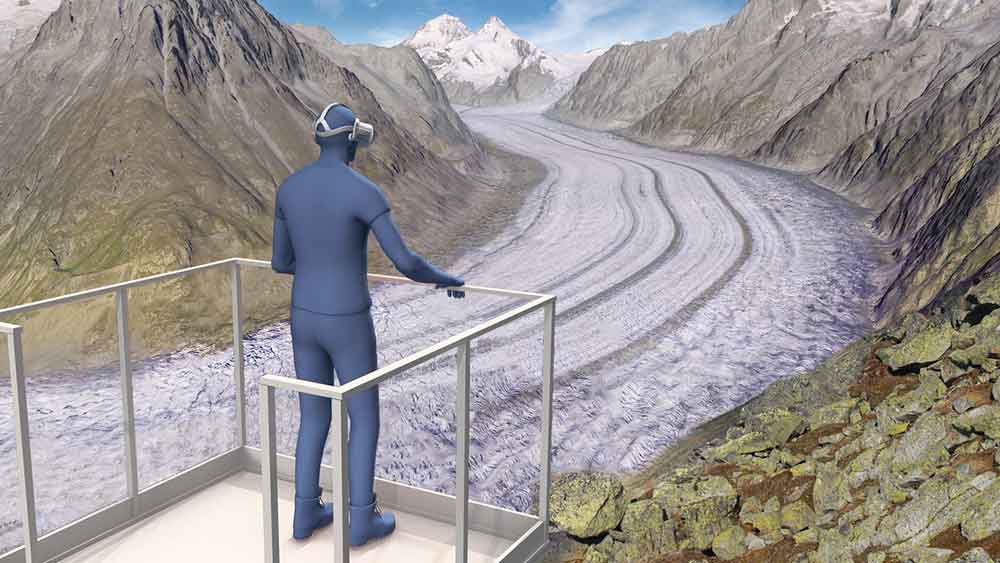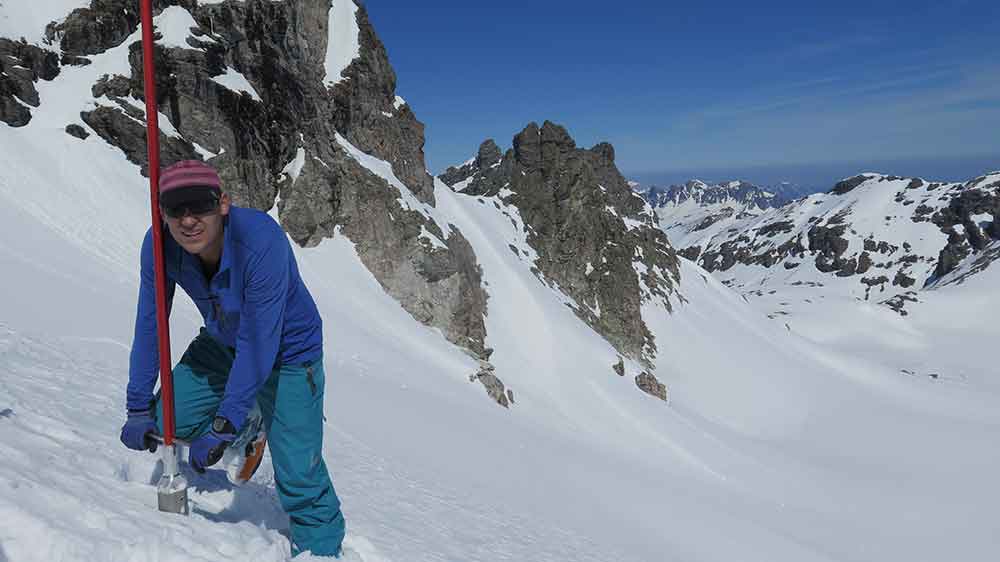Highlighting the Global Connection
Andreas Linsbauer began his career as a primary school teacher, later studied geography and trained to teach in secondary schools, and then began researching glaciology and led an interdisciplinary project in science communication. The thread running through all of these roles is his passion for bringing the worlds of education and the environment together. His aim is to communicate abstract facts – such as the 2-degree target for global warming agreed at the Paris Climate Conference – in a way that is effective and accessible to his audience. What exactly do these 2 degrees mean for the Alpine landscape? What does this mean for the human race? These are the questions addressed by the Expedition 2 Grad exhibition opening today at the National Park Centre in Zernez.
Virtual tour in the Aletsch region
Wearing a 3D headset, the visitors set off on the Expedition 2 Grad. In the virtual world around the Great Aletsch Glacier, they witness the effects of rising temperatures in the Alpine environment – and, seeing the changes at an accelerated pace and directly before their very eyes, experience an emotional response. Traveling through time and space, they see the Aletsch region at the beginning of industrialization, through the eyes of their grandparents, and finally through the eyes of future generations. "This enables the participants to get an idea of the effects of decisions taken at different stages in time," says Andreas Linsbauer.
The idea for this project was formed in conjunction with colleagues from the Knowledge Visualization subject area of the Zurich University of the Arts — in short, as a result of Linsbauer's dissertation, in which he calculated scenarios for the retreat of glaciers in Switzerland. Working with researchers from hydrology and climatology, the aim was to assess the effects of climate change on Switzerland's water resources. Unfortunately, the available data had not been sufficiently analyzed in time for Expedition 2 Grad. "But in glaciology, cooperation with ETH, the University of Fribourg and various other institutions is very good," says Linsbauer, "which is how this problem could be solved.” Using scenarios for glacier retreat, aerial photographs and elevation information, an interdisciplinary project consortium was able to create a three-dimensional model of the glacier landscape in which participants can travel virtually through time.
Inspiring people to act
The reason for choosing the virtual reality concept was to specifically reach schoolchildren of secondary school levels I and II. "They are the ones making tomorrow's decisions," says Linsbauer. A supporting program and a class discussion complete the virtual reality experience. "However, we don't want the young people to leave with a bad conscience." Rather, the aim is to inspire them to become active themselves – whether as individuals or as a collective – and to exert pressure on politicians and decision-makers, says Linsbauer. The fact that the project now coincides with the climate protests and activities organized by Swedish schoolgirl Greta Thunberg could not be better.
For Linsbauer, Expedition 2 Grad is just one step on a path that branches off into teaching, education and the environment: As an instructor and academic associate at the Geography Teacher Training Unit of the Department of Geography, he also trains future secondary school geography teachers.

